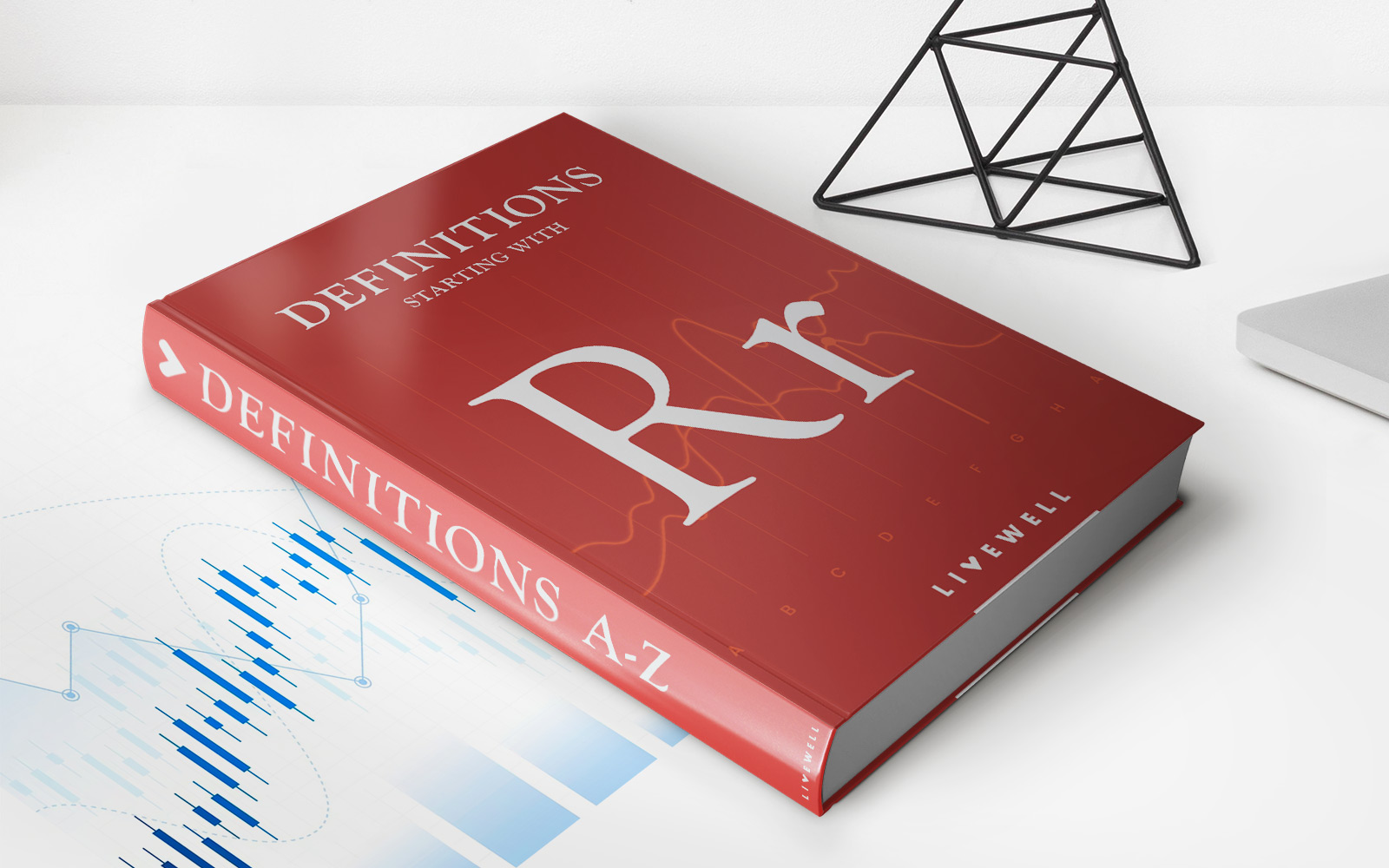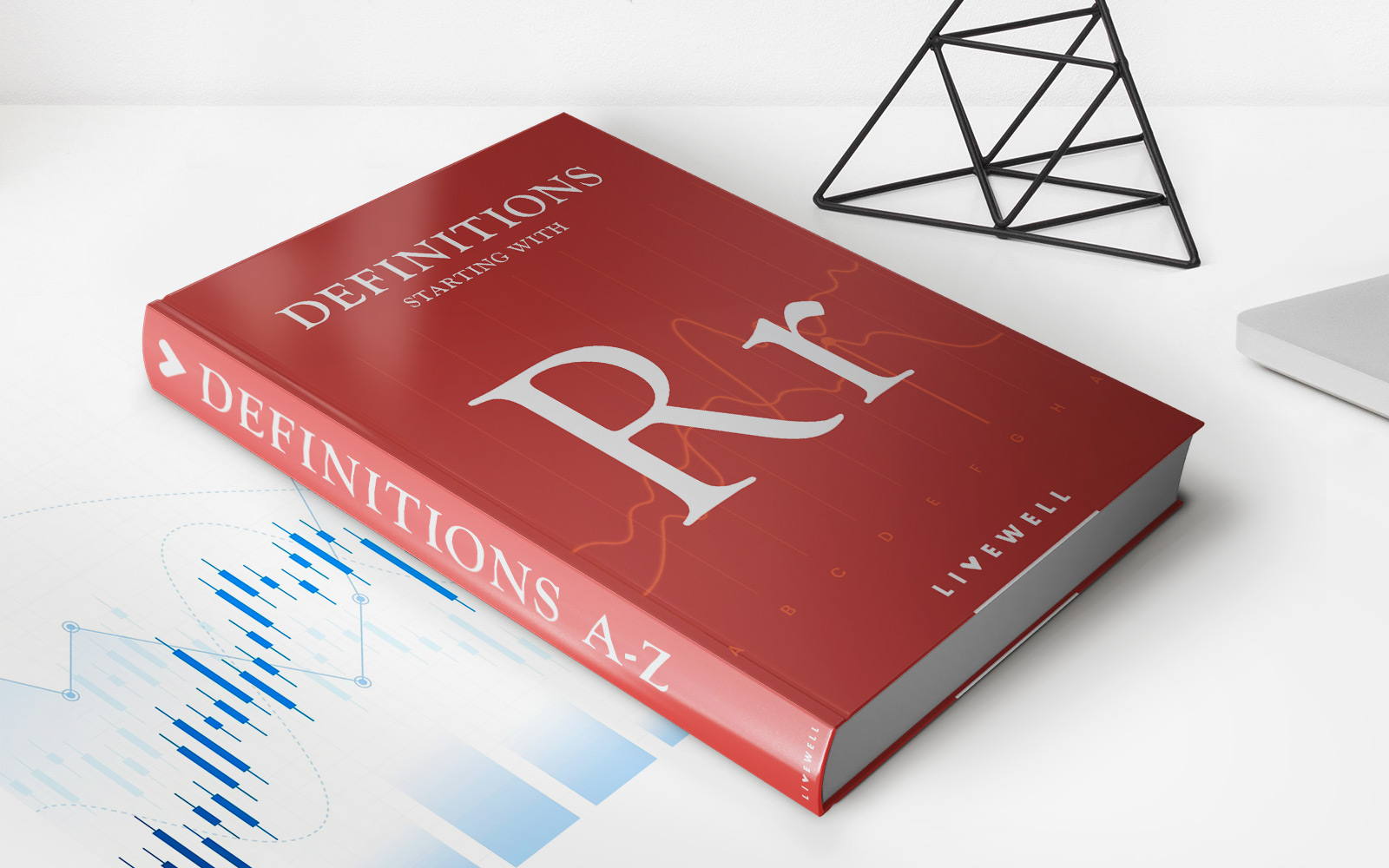

Finance
What Is A First Mortgage Loan
Modified: December 30, 2023
Learn what a first mortgage loan is and how it can help you finance your dream home. Find out the benefits and eligibility requirements today.
(Many of the links in this article redirect to a specific reviewed product. Your purchase of these products through affiliate links helps to generate commission for LiveWell, at no extra cost. Learn more)
Table of Contents
Introduction
A first mortgage loan plays a crucial role in the world of finance and real estate. It is often the key to achieving the dream of homeownership or accessing funds for other important financial needs. But what exactly is a first mortgage loan? In this article, we will delve into the definition, workings, types, benefits, and qualifications associated with a first mortgage loan.
Put simply, a first mortgage loan is a loan that is secured by real estate property. It is called a “first” mortgage because it has priority over any other loans or liens on the property. In the event of default, the first mortgage lender has the first right to the proceeds from the sale of the property to recover their investment.
The primary purpose of a first mortgage loan is to provide individuals and families with the funds necessary to purchase a home. This loan allows buyers to spread the cost of the home over an extended period, typically 15 to 30 years, making homeownership more affordable and accessible. However, first mortgage loans can also be used for various other purposes, such as financing home renovations, consolidating debts, or funding major life events like weddings or education expenses.
To understand how first mortgage loans work, it is essential to grasp the concept of collateral. In the case of a first mortgage loan, the collateral is the property being financed. By pledging the property as collateral, the borrower provides security to the lender. If the borrower fails to make the required loan payments, the lender has the right to foreclose on the property to recover the outstanding debt.
Definition of a First Mortgage Loan
A first mortgage loan is a type of loan that is secured by real estate property. It is called a “first” mortgage because it has priority over any other loans or liens on the property. In other words, if the borrower defaults on the loan, the first mortgage lender has the first right to the proceeds from the sale of the property to recover their investment.
When obtaining a first mortgage loan, the borrower enters into a legal agreement with the lender, pledging the property as collateral. The lender then provides the borrower with a specified amount of money, which is typically used to finance the purchase of a home.
The first mortgage loan is structured as an amortizing loan, which means that the borrower makes regular monthly payments over a predetermined period, usually 15 to 30 years. The payments consist of both principal and interest, with the interest portion gradually decreasing over time as the principal is paid down.
The terms and conditions of a first mortgage loan can vary depending on factors such as the borrower’s creditworthiness, the loan amount, and the prevailing interest rates. Generally, the interest rates for first mortgage loans are lower compared to other forms of borrowing, as the loan is secured by the property.
In addition to the principal and interest payments, a first mortgage loan may also include escrow payments. These payments are set aside to cover property taxes and insurance, which are typically paid by the lender on behalf of the borrower to ensure that the property taxes are paid and the property is adequately insured.
In the event of default on the first mortgage loan, the lender has the right to initiate foreclosure proceedings. This involves selling the property to recover the outstanding debt. However, foreclosure is typically seen as the last resort, and lenders usually work with borrowers to explore alternatives and find a mutually beneficial solution.
To summarize, a first mortgage loan is a secured loan that allows individuals and families to finance the purchase of a home or leverage their property for other financial needs. It provides borrowers with the flexibility to spread the cost of homeownership over an extended period, making it more affordable and accessible.
How First Mortgage Loans Work
Understanding how first mortgage loans work is essential for anyone considering homeownership or needing funds for other important financial obligations. Here is an overview of the key aspects of how first mortgage loans operate:
- Loan Application: The first step in securing a first mortgage loan is to apply with a lender. This involves submitting the necessary financial information, such as income, assets, and credit history, to determine your eligibility and loan amount.
- Loan Approval: Once your application is reviewed, the lender will assess your creditworthiness and financial stability to determine if you qualify for the loan. Factors such as credit score, employment history, and debt-to-income ratio play a significant role in the approval process.
- Loan Terms: After your loan is approved, the lender will provide you with the specific terms and conditions of the loan. This includes the loan amount, interest rate, repayment period, and any additional fees or charges. It is crucial to carefully review and understand these terms before proceeding.
- Down Payment: In most cases, borrowers are required to make a down payment towards the purchase price of the property. The down payment amount is typically a percentage of the total price and is paid upfront at the time of closing the loan.
- Loan Disbursement: Once the loan terms are finalized and the down payment is made, the lender will disburse the funds. This means that the loan amount will be transferred to the seller or the borrower, depending on the purpose of the loan.
- Repayment: Repayment of a first mortgage loan is typically done through monthly installments. These installments consist of both principal and interest portions, with the interest gradually decreasing over time as the principal balance is paid down.
- Escrow Account: Some lenders may require borrowers to establish an escrow account for property taxes and insurance. These payments are collected as part of the monthly installment and held by the lender to ensure they are paid on time.
- Loan Servicing: In many cases, the lender may sell or transfer the servicing of the loan to a different entity. This means that while the borrower still owes the debt to the original lender, they make their monthly payments to the new loan servicer.
- Loan Prepayment: Some borrowers may choose to pay off their first mortgage loan before the predetermined term ends. However, it’s essential to review the loan agreement to understand if any prepayment penalties or fees apply.
- Loan Modifications or Refinancing: In certain situations, borrowers may need to modify their loan terms or refinance their first mortgage loan. This can be done to lower the interest rate, extend the repayment period, or change other loan terms to better suit their financial needs.
By understanding how first mortgage loans work, borrowers can make informed decisions and navigate the borrowing process with confidence. It’s crucial to read and understand the loan agreement and work closely with the lender to ensure a smooth and successful loan experience.
Types of First Mortgage Loans
When it comes to first mortgage loans, there are several types available to suit different homeowner needs and financial situations. Here are some common types of first mortgage loans:
- Conventional Loans: Conventional loans are not insured or guaranteed by any government agency. They typically require a higher credit score and down payment compared to government-backed loans but offer more flexibility in terms of loan amounts and property types.
- FHA Loans: FHA loans, insured by the Federal Housing Administration, are popular among first-time homebuyers and those with lower credit scores. These loans typically offer more lenient qualification requirements and allow for a lower down payment.
- VA Loans: VA loans are available to eligible veterans, active-duty military personnel, and surviving spouses. They are guaranteed by the Department of Veterans Affairs and often offer more favorable terms, such as no down payment requirement and competitive interest rates.
- USDA Loans: USDA loans are backed by the U.S. Department of Agriculture and are designed to help low to moderate-income borrowers in rural areas. These loans often feature low or no down payment requirements and competitive interest rates.
- Jumbo Loans: Jumbo loans are first mortgage loans that exceed the conforming loan limits set by Fannie Mae and Freddie Mac. These loans are suitable for borrowers purchasing high-value properties and typically require a larger down payment and a higher credit score.
- Fixed-Rate Loans: Fixed-rate loans have a consistent interest rate throughout the life of the loan. This means that the borrower’s monthly payments remain the same, providing stability and predictability.
- Adjustable-Rate Loans: Adjustable-rate loans have an initial fixed interest rate for a specific period, after which the rate can fluctuate based on market conditions. These loans often offer lower initial interest rates but may be subject to rate adjustments in the future.
- Interest-Only Loans: Interest-only loans allow borrowers to make lower monthly payments by only paying the interest on the loan for a specific period. Afterward, the borrower must begin making principal and interest payments.
It’s essential for borrowers to carefully consider their financial situation, long-term goals, and loan repayment capabilities when choosing a first mortgage loan. Working with a knowledgeable lender or mortgage professional can help individuals select the type of loan that best meets their needs and aligns with their financial objectives.
Benefits of a First Mortgage Loan
Obtaining a first mortgage loan offers numerous benefits for individuals and families looking to purchase a home or leverage the equity in their property. Here are some advantages of a first mortgage loan:
- Homeownership: The most significant benefit of a first mortgage loan is that it enables individuals and families to achieve the dream of homeownership. Without the availability of mortgage loans, many people would struggle to save enough money to purchase a home outright.
- Flexible Loan Amounts: First mortgage loans come in various sizes, allowing borrowers to choose a loan amount that aligns with their budget and the cost of the property they desire. This flexibility ensures that borrowers can find a loan that suits their unique financial circumstances.
- Long-Term Financing: First mortgage loans typically have extended repayment terms, ranging from 15 to 30 years. This long-term financing provides borrowers with the ability to spread out the cost of homeownership over an extended period, making monthly payments more manageable.
- Tax Deductibility: In many cases, the interest paid on a first mortgage loan is tax-deductible. This can result in significant savings for homeowners, reducing their overall tax liability and making homeownership more affordable.
- Home Equity Building: As individuals make regular mortgage payments, they build equity in their homes. Equity represents the difference between the property’s market value and the outstanding loan balance. This equity can be leveraged in the future for other financial needs, such as home renovations or debt consolidation.
- Stable Housing Costs: With a fixed-rate first mortgage loan, borrowers can enjoy stable housing costs. Unlike renting, where monthly payments can increase over time, fixed mortgage payments remain the same throughout the loan term, providing predictability and allowing for better budgeting.
- Appreciation Potential: Real estate has the potential to appreciate over time, meaning the value of the property may increase. As property values rise, homeowners with first mortgage loans can benefit from the appreciation and potentially build wealth through their investment.
- Borrowing Opportunities: Having a first mortgage loan in good standing can create opportunities for future borrowing. The property’s equity can be tapped into through a home equity loan or line of credit, allowing homeowners to access funds for other purposes.
These benefits highlight the significant advantages of obtaining a first mortgage loan. However, it’s important for borrowers to carefully consider their financial situation and conduct thorough research to ensure that homeownership and the associated loan are a suitable fit for their needs and long-term goals.
Qualifying for a First Mortgage Loan
Qualifying for a first mortgage loan involves meeting certain requirements set by lenders to ensure borrowers have the financial stability to repay the loan. Here are some key factors that lenders consider when evaluating loan applicants:
- Credit Score: Lenders typically look at an applicant’s credit score to assess their creditworthiness. A higher credit score demonstrates a history of responsible borrowing and makes it easier to qualify for a first mortgage loan. Most lenders have a minimum credit score requirement, although acceptable credit scores can vary.
- Income and Employment History: Lenders want to ensure that borrowers have a stable source of income to make regular mortgage payments. They typically require documentation of income, such as pay stubs, W-2 forms, or tax returns. A steady employment history also reflects the borrower’s ability to meet their financial obligations.
- Debt-to-Income Ratio (DTI): Lenders consider the borrower’s DTI, which is the percentage of their monthly gross income that goes towards debt payments. A lower DTI ratio indicates a borrower’s ability to manage their debts and handle additional mortgage payments. Lenders generally prefer a DTI ratio of 43% or lower.
- Down Payment: Most first mortgage loans require a down payment towards the purchase of the property. The down payment amount is typically expressed as a percentage of the total purchase price. The higher the down payment, the lower the loan-to-value ratio and the lower the risk for the lender.
- Property Appraisal: Lenders often require a professional appraisal of the property to determine its market value. The appraisal ensures that the loan amount is proportionate to the property’s value and that the lender’s investment is adequately secured.
- Loan-to-Value Ratio (LTV): The LTV ratio is the loan amount divided by the property’s appraised value. Lenders usually have specific LTV limits, and a lower ratio indicates a lower risk for the lender. Generally, the lower the LTV ratio, the better chance of loan approval and favorable loan terms.
- Documentation and Paperwork: Lenders require various documents during the mortgage application process, such as bank statements, tax returns, proof of assets, and identification documents. It’s important for borrowers to gather and provide all necessary paperwork to expedite the loan approval process.
Keep in mind that the specific qualification requirements can vary based on the lender, loan program, and individual circumstances. It’s advisable to consult with a mortgage professional or loan officer who can guide borrowers through the process and provide personalized advice.
Applying for a First Mortgage Loan
Applying for a first mortgage loan can seem like a daunting process, but with careful preparation and guidance, it can be a smooth and successful experience. Here are the key steps involved in applying for a first mortgage loan:
- Gather Financial Information: Before starting the application process, gather all necessary financial documents, including pay stubs, bank statements, tax returns, and proof of assets. Having these documents readily available will streamline the application process.
- Check Your Credit Report: Request a copy of your credit report from the three major credit bureaus and review it for any inaccuracies or issues. Address any errors and take steps to improve your credit score if needed, as a higher credit score can help you secure better loan terms.
- Research Mortgage Lenders: Research and compare different mortgage lenders to find one that offers competitive interest rates, favorable loan terms, and excellent customer service. Consider seeking recommendations, reading reviews, and speaking with loan officers to assess their expertise and responsiveness.
- Prequalification or Preapproval: Consider getting prequalified or preapproved for a mortgage loan before starting your home search. Prequalification provides an estimate of how much you can borrow, while preapproval involves a more thorough evaluation of your financial situation by the lender.
- Loan Application: Complete the loan application provided by the lender. Be prepared to provide detailed information about your income, employment history, assets, debts, and any other necessary information. Fill out the application accurately and completely to avoid delays in the approval process.
- Underwriting and Loan Processing: Once the loan application is submitted, the lender will initiate the underwriting and loan processing stage. During this process, the lender will verify the information provided, review the appraisal report, and assess your creditworthiness to determine if you qualify for the loan.
- Loan Approval and Closing: If your loan application is approved, the lender will send you a loan commitment letter outlining the terms and conditions of the loan. Review the letter carefully, and if you agree, schedule a closing appointment to sign the necessary documents and finalize the loan.
- Post-Closing: After closing the loan, continue to make your mortgage payments on time and maintain open lines of communication with the lender. Keep track of important dates, such as when your interest rate may adjust or when you can consider refinancing to potentially lower your monthly payment.
Remember to stay organized throughout the mortgage application process, respond promptly to any requests from your lender, and ask questions if anything is unclear. Working with an experienced loan officer can provide valuable guidance and support, ensuring a smooth and successful first mortgage loan application.
Choosing the Right Lender for a First Mortgage Loan
Choosing the right lender for a first mortgage loan is a crucial decision that can greatly impact your borrowing experience and long-term financial goals. Here are some factors to consider when selecting a lender:
- Interest Rates and Loan Terms: Compare the interest rates and loan terms offered by different lenders. Look for competitive rates and favorable terms that align with your budget and financial goals. A slight difference in interest rates can have a significant impact on your monthly payments and overall loan cost.
- Lender Reputation: Research the reputation and track record of potential lenders. Look for lenders with positive customer reviews, a stable financial history, and a strong presence in the mortgage industry. You can check online reviews, ask for referrals from friends or real estate professionals, and assess their accreditation and ratings from trusted organizations.
- Loan Programs: Consider the loan programs offered by each lender. Some lenders specialize in specific loan types, such as FHA or VA loans, while others may offer a wider range of options. Choose a lender that provides loan programs that meet your specific needs and eligibility criteria.
- Customer Service: Evaluate the level of customer service provided by each lender. Prompt and clear communication is crucial throughout the mortgage process. Pay attention to how responsive and helpful the loan officers and support staff are during your initial interactions, as this can be an indication of their commitment to providing excellent customer service.
- Closing Timeframe: Inquire about the average closing timeframe of the lender. A prompt and efficient closing process is essential, especially in competitive real estate markets. Ask about their ability to meet deadlines and ensure a smooth closing experience.
- Additional Fees and Costs: In addition to the interest rate, consider the various fees and costs associated with obtaining a mortgage loan. These can include origination fees, application fees, appraisal fees, and closing costs. Compare these fees across different lenders to ensure you are not being charged excessive amounts.
- Loan Officer Expertise: Assess the expertise and experience of the loan officers or mortgage professionals you interact with at each lender. They should be knowledgeable about different loan programs, able to answer your questions, and guide you through the mortgage process with clarity and transparency.
- Prequalification and Preapproval Process: Evaluate the prequalification or preapproval process offered by each lender. A thorough preapproval process can give you a better idea of how much you can afford and make your offer more competitive when buying a home.
- Availability of Online Tools: Consider whether the lender offers online tools and resources that can simplify the mortgage application process, provide real-time updates, and allow for digital document submission. This can make the application and approval process more convenient and efficient.
Take the time to carefully research and compare different lenders to find the best fit for your needs. Don’t hesitate to ask questions, seek clarity, and trust your instincts when making your decision. A reputable and reliable lender can make the mortgage process smoother and help you achieve your homeownership goals more effectively.
Conclusion
Obtaining a first mortgage loan is a significant financial decision that can pave the way for homeownership and provide access to funds for various financial needs. Understanding the definition, benefits, types, qualifying factors, and application process of a first mortgage loan is crucial for a successful borrowing experience.
By securing a first mortgage loan, individuals and families can turn their homeownership dreams into reality. It offers the opportunity to spread the cost of a home purchase over an extended period, making it more affordable and accessible. Additionally, first mortgage loans allow borrowers to build equity, potentially benefit from property appreciation, and enjoy stable housing costs.
When considering a first mortgage loan, it is essential to research and compare lenders to find one that offers favorable terms, competitive rates, and excellent customer service. Evaluating factors such as interest rates, loan terms, reputation, and loan programs can help you make an informed decision that aligns with your financial goals.
Remember to gather all necessary financial documents, review your credit report, and ensure you meet the qualification requirements of the lender. Working closely with a loan officer or mortgage professional can guide you through the application process and answer any questions or concerns you may have.
Ultimately, a first mortgage loan provides the means for individuals and families to achieve homeownership, build equity, and potentially accumulate wealth through property ownership. With careful planning and the support of the right lender, you can embark on the exciting journey of purchasing a home and enjoy the benefits it brings for years to come.














